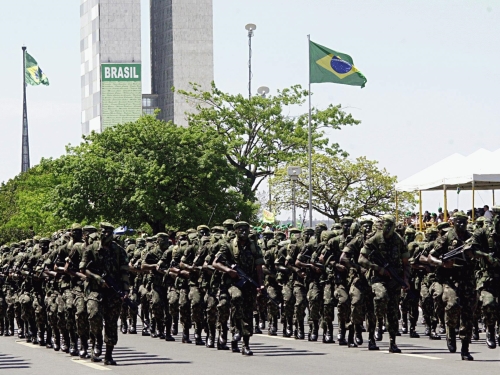
This article was originally published by Strife on 9 February, 2015.
Earlier this year, Dilma Rousseff replaced the chiefs of the armed forces for the first time as President of Brazil. The most anticipated was her pick for the influential position of Army Commandant. Rousseff’s choice raised a few eyebrows because she broke with the established practice of appointing the most senior officer for the job. It unexpectedly fell to candidate General Eduardo Dias da Costa Villas Bôas, just third in terms of seniority, to lead a fighting force of nearly 190,000 active personnel. With eight years ahead as the most senior commander of Brazil’s military, Villas Bôas will have to address several challenges if he expects to cement Brazil’s status as a major world power.
